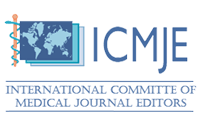Assessment and Management of Patients With Drug Abuse: Nurses Should be Involved
Affiliation
Ahmad Rayan, Faculty of Nursing, Zarqa University, Jordan
Corresponding Author
Ahmad Rayan, Assistant Professor/Psychiatric and Mental Health Nursing, Faculty of Nursing, Zarqa University, Jordan, Tel: +00962786150103; E-mail: ahmed_rayan87@yahoo.com
Citation
Rayan, A. Assessment and Management of Patients with Drug Abuse: Nurses should be Involved. (2017) J Addict Depend 3(1): 1- 2.
Copy rights
© 2017 Rayan, A. This is an Open access article distributed under the terms of Creative Commons Attribution 4.0 International License.
Keywords
Nurse, Substance abuse, addiction, assessment, management
Abstract
Drug abuse should be a concern for all health care professionals. Nurses are frequently providing care for patients with substance abuse, but their role in assessment and management of patients with drug abuse has yet to be established. This paper provides a brief description regarding the role of nurses in providing care for these patients.
Introduction
Substance abuse is one of the most life threatening illnesses worldwide, which can be associated with adverse consequences related to repeated use of the substance[1-5]. Untreated substance abuse might result in disturbances in social, occupational, or recreational activities. Furthermore, intoxication and withdrawal might have devastating impacts on health. Nurses are directly involved in providing care for patients with substance abuse disorder[6]. Therefore, they are in a key position to help patients suffering from substance abuse. However, the nurse role in assessment and management of substance abuse is not well-defined. The purpose of this paper is to provide a brief description about the nursing role in assessment and management of patients with substance abuse.
Nurses should anticipate addiction and be aware of its risk factors. They should accurately assess patients and immediately report any signs and symptoms of addiction. Sudden change in behaviors and personality, social isolation, poor occupational performance, preoccupation with substances abused, and sudden weight loss are among the commonly reported symptoms of substance abuse. It is important for nurses to have knowledge about the most common substances that cause abuse such as Alcohol, Amphetamines, Caffeine, Cannabis, Cocaine, Hallucinogens, Inhalants, Nicotine, Opioids, Phencyclidine, Sedative, and hypnotics, or anti-anxiety agents. The most commonly abused substances by elderly are alcohol, cocaine, and opiates. It is noteworthy to mention that addiction could be related to some behaviors such as Internet use and not only using substances[7]. To better assess substance abuse in patients, nurses should use specific and valid screening tools such as the CAGE Questionnaire for screening of Alcoholism. Furthermore, nurses should be aware about the laboratory tests used to assess patients with substance abuse such as blood alcohol level. During assessment phase, nurses should examine their feelings and avoid stigmatizing patients with substance abuse[8].
In fact, there is no single intervention appropriate for all individuals with substance abuse. The effective intervention should consider the multiple needs of the individual with substance abuse, not only the drug use. Nurses should help patients to overcome many barriers that negatively influence attitudes toward seeking professional help, including lack of knowledge, denial, comorbidity, embarrassment, and lack of support. Nurses can participate in different management modalities for patients with substance abuse disorder such as conducting individual therapy for clients with substance related disorder who have high levels of anxiety and inadequate coping mechanisms[9]. Nurses can discuss with the patient possibility of relapse and refusal to continue therapy. In group setting, nurses can facilitate group discussion to enhance sobriety and willingness to share experiences. The adequate period of time spent in treatment is critical to achieve sobriety. Nurses can also instruct patients to do behavioral modifications and use specific medications such as Disulfiram (Antabuse). In fact, no specific antidotes are available for all substances abused, and each substance usually has a specific antidote to be used. During detoxification process, activated charcoal is only useful when there is a current oral ingestion of the substance. During detoxification process, the nurse should provide calm and supportive environment for the patient and administer the needed therapy as ordered. Most symptoms of intoxication are self-limited and resolve within few days after the supportive treatment. During intoxication process, most patients experience acute symptoms such as anxiety, agitation and tremor. Most of the time, anxiety, agitation, and seizures are treated by benzodiazepines. For the severe agitation, antipsychotics are used[10]. Abrupt discontinuation of the substances abused is usually not recommended. However, some substances such as stimulants and hallucinogens can be discontinued without tapering off or replacement with another therapy as they have rare and low-grade withdrawal symptoms[11]. If necessary, intravenous fluids and antiemetics are administered during the supportive care. Unsurprisingly, patients with severe intoxication symptoms should have frequent neurological assessments and be initially attached to continuous cardiac monitoring with pulse oximetry[12].
When the condition of the patient becomes better, nurses should promote understanding of the physical symptoms and how to deal with them. The nurse can explain to the patient the causes of substance abuse. Immediately before discharge, the nurse should encourage continued participation in outpatient support system and long-term treatment. Patient should be also instructed about the alternative sources of satisfaction and coping strategies. Recently, nurses can participate in mindfulness-based interventions to decrease stress experienced by different population[13-17]. The mindfulness-based interventions could be helpful to support these patients. The patient should acknowledge the relationship between everyday life problems and substance use. Nurses should tell patients that substance abuse disorder is a mental illness like schizophrenia and depression and could be associated with poor coping strategies[18]. Interventions directed toward increased self-worth are encouraged. Safety is an important aspect that should be prioritized to assure that the patient has not caused harm to self or others or caused any physical injury to others. The most important point before discharge is to support the patient to assume responsibility for his or her own behavior and to verbalize the importance of abstaining from use of substances. Finally, after discharge, a long-term follow-up is recommended, and the nurse can work as a liaison between the patient and the community services.
References
- 1. Arumalla, V.K., et al. Ligature Mark in Hanging – Gross and Histopathological Examination with Evaluation and Review (2016) J Addict Depend 2(2): 1- 7.
- 2. Ahmadi, J. Positive Effect of Low Dose of Buprenorphine in the Treatment of Severe Hashish Withdrawal craving: An Original Arcade. (2016) J Addict Depend 2(2): 1- 3.
- 3. Ahmadi, J. Pethidine Abuse: A Novel Finding. (2016) J Addict Depend 2(2): 1- 3.
- 4. Ahmadi, J. Cannabis Induced Psychosis Treatment: An Original Approach. (2016) J Addict Depend 2(2): 1- 2.
- 5. Das, J. Drugs to Treat Alcohol Dependence-A Perspective. (2016) J Addict Depend 2(2): 1- 4.
- 6. Rayan, A. Assessment and Prevention of Risk Factors Associated with Smoking in Jordanian Adolescents: Application of Newman System Model as a Guiding Framework. (2016) J Addict Depend 2(3): 1-5
- 7. Rayan, A., Dadoul, A., Jabareen., et al. Internet Use among University Students in South West Bank: Prevalence, Advantages and Disadvantages, and Association with Psychological Health. (2016) Int J Ment Health Addiction 1-12.
- 8. Rayan, A., Jaradat, A. Stigma of Mental Illness and Attitudes Toward Psychological Help-seeking in Jordanian University Students. (2016) Psychol Behav Sci 4 (1).
- 9. Rayan, A., Dadoul, A. Decrease the length of hospital stay in depressed cancer patients: Nurses should be involved. (2015) Am J Nursing Res 3(1) 4-7.
- 10. Spiller, H.A., Ryan, M.L., Weston, R.G., et al. Clinical experience with and analytical confirmation of “bath salts” and “legal highs” (synthetic cathinones) in the United States. (2011) Clin Toxicol (Phila) 49: 499-505.
- 11. Weaver, M.F., Schnoll, S.H. In Addictions: A Comprehensive Guidebook. In: McCrady BS, Epstein EE, editors. Stimulants: amphetamines and cocaine. (1999) New York: Oxford University Press: 105-120.
- 12. Chakraborty, K., Neogi, R., Basu, D. Club drugs: review of the ‘rave’ with a note of concern for the Indian scenario. (2011) Indian J Med Res 133: 594-604.
- 13. Rayan, A., Ahmad, M. Psychological Distress in Jordanian Parents of Children With Autism Spectrum Disorder: The Role of Trait Mindfulness. (2016) Perspect Psychiatr Care.
- 14. Rayan, A., Ahmad, M. Mindfulness-Based Intervention: A Culturally Adaptable Intervention in Clinical Psychology. (2016) Clin Psychiatry 2(3).
- 15. Rayan, A., Ahmad, M. Effectiveness of mindfulness-based interventions on quality of life and positive reappraisal coping among parents of children with autism spectrum disorder. (2016) Res Dev Disabil 55: 185-196.
- 16. Rayan, A., Ahmad, M. Effectiveness of Mindfulness-Based Intervention on Perceived Stress, Anxiety, and Depression among Parents of Children with Autism Spectrum Disorder. (2016) Mindfulness: 1-14.
- 17. Rayan, A., Ahmad, M. Psychological Distress in Jordanian Parents of Children with Autism Spectrum Disorder: The Role of Positive Reappraisal Coping. (2016) Arch Psych Nurs.
- 18. Rayan, A., Mahroum, H. The Correlates of Quality Of Life among Jordanian Patients with Major Depressive Disorder. (2016) Res Psychol Behav Sci 4(2): 28-33.












